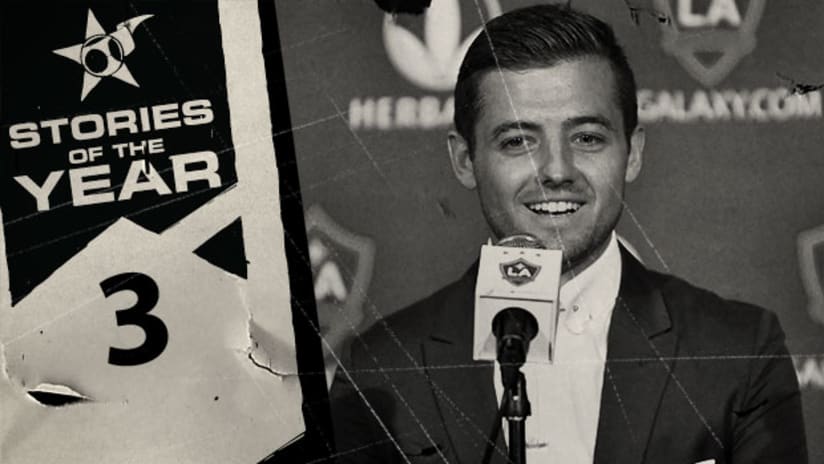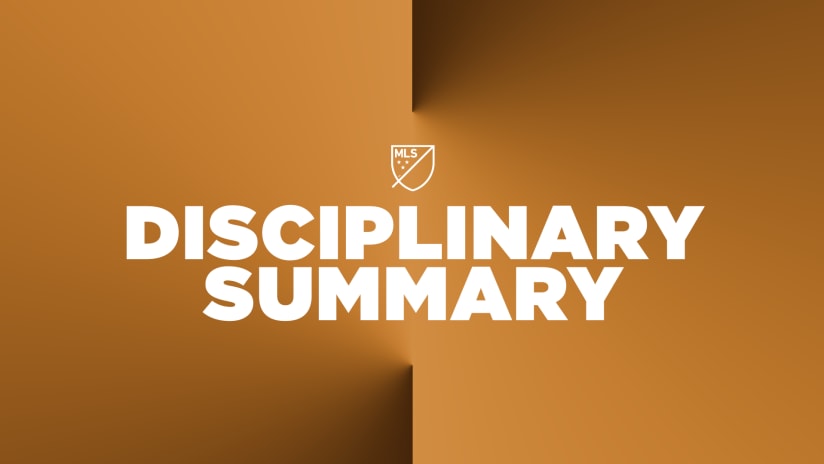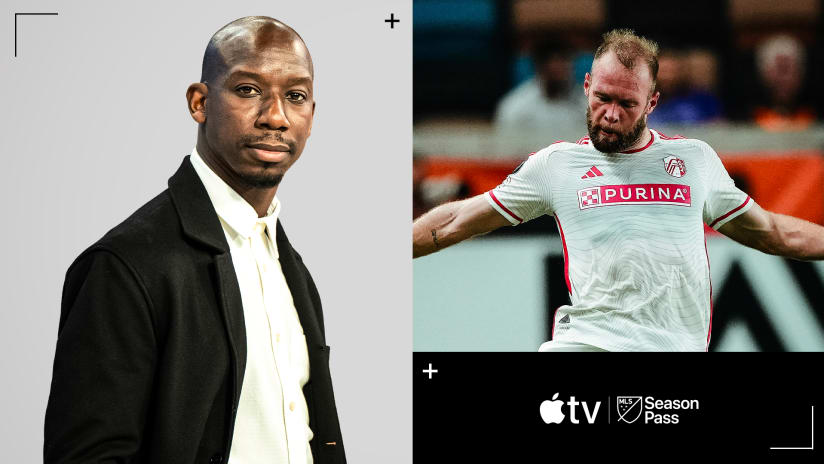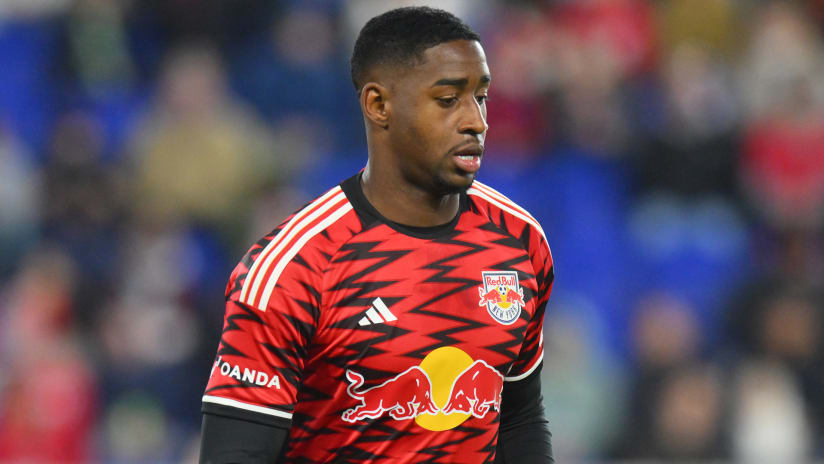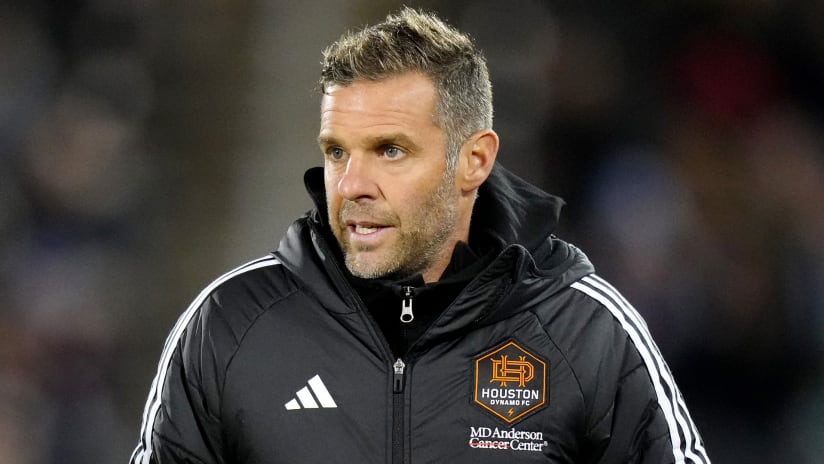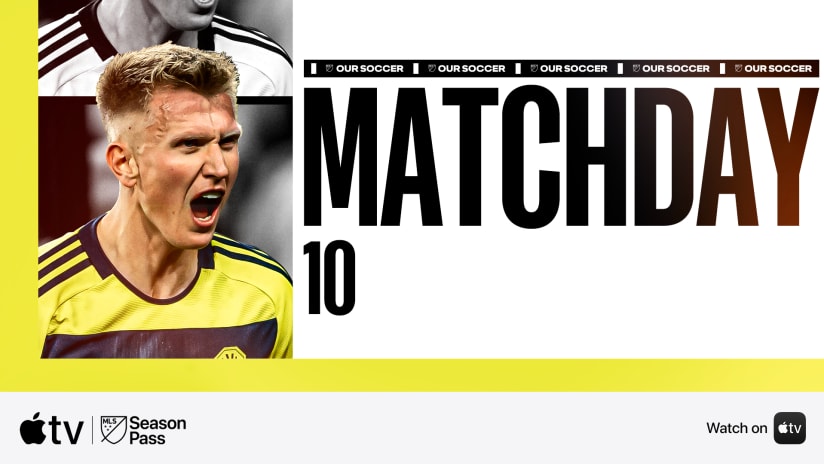As the Best of 2013 continues on MLSsoccer.com, we're counting down the 10 most important stories of the year in Major League Soccer. On Dec. 30, we'll reveal the Story of the Year, as voted by our panel of 20 editors, writers, videographers and statistics specialists.
It's hard to believe that an emotional year for Robbie Rogers only comes in at No. 3 on the 2013 list, considering he became the first openly gay player in league history and his trade demand had a direct effect on who would go on to win the league MVP. Contrbutor John Bolster takes a look how it all went down, and what it means going forward.
We’re going to reach a time, probably in the not-too-distant future, when a professional athlete’s sexuality is about as relevant as how high he wears his socks. And there are many observers who, for varying reasons, wish we could hurry up and get there.
But it’s worth repeating that we are not quite there yet. Not in the United States and, especially, not in the wider world. (Russia, host of the 2018 World Cup and site of widespread anti-gay violence in 2013, springs to mind.)
That’s why Robbie Rogers’ decision to return to soccer this past spring, after coming out in February and briefly retiring from the sport, is an important, landmark moment, not just for Major League Soccer but for society in general.
When he made his personal announcement, in a raw, late-night blog post, Rogers had no intention of returning to soccer. He was still processing his decision.
But over time, he warmed to the opportunity in front of him, to open a door that others might more comfortably follow him through later on. “I want to come back and be that voice, be that role model,” he told USAToday.com. “It’s awesome to be a part of a movement that is changing our society.”
There were other factors in his decision, too. “I was looking over some video clips of me just training, fooling around, and just enjoying football,” he told the Soccer Today podcast back in May. “And it kind of [made me think], ‘Oh my gosh, I miss this stuff.’”
Fired up by the clips, he got his soccer Jones back. “I want to compete on the field. I want to make it back to the national team,” he told USAToday.com at the time.
Unfortunately, that part of the story hasn’t panned out as he hoped – at least not yet, anyway – and that’s where the controversy in Rogers’ 2013 odyssey crops up.
- BEST OF 2013: Rogers' trade demand the Controversy of the Year
In May 2013, his MLS rights were held by the Chicago Fire, but Rogers, while telling ESPN that he was interested in returning to soccer in the US (he parted ways with Leeds United in January 2013, after an injury-marred, yearlong stint in England), also stated a strong preference.
“I don’t want to go to Chicago,” he said. “I think if it comes down to you can only play in Chicago, then I probably won’t go back. I need to do it somewhere where I’m totally 100 percent comfortable so … I would most likely do it close to my family.”
The Southern California native was all but saying, I need to play for the Galaxy or I won’t play at all. And let’s be honest, his potential as a trailblazer (along with his track record as a national team player and MLS Cup champion) gave him some leverage.
Sure enough, the Galaxy swung a deal, announcing that Mike Magee, their leading scorer at the time, was eager to return to his hometown of Chicago to raise his young daughter near family. The Fire and the Galaxy swapped the players straight up
Now, hindsight is 20-20, but at the time, the deal – while a head-scratcher, for sure – didn’t seem outrageously uneven. Rogers has 18 caps and two goals for the US national team; Magee has never been capped.
Rogers is a speedy winger with championship experience, whose qualities looked like a good fit for LA’s system, and who could benefit (as many would) from playing with the likes of Robbie Keane and Landon Donovan. Magee had not scored more than five goals in a season since 2003.
As it turned out, though, it was probably the most lopsided trade in MLS history: Magee went on to bag 15 goals and four assists for the Fire, finishing the year with 21 goals, four assists and the MLS MVP Award (but, curiously, still no USMNT call-up). Rogers battled injury and form woes, making just 11 appearances and producing one assist. He also went without a goal or an assist in the postseason, a time when Magee had consistently excelled for Los Angeles.
- BEST OF 2013: Which other stories made the Top 10?
So Rogers’ once-bright, rainbow-hued story dimmed a bit as the season progressed, but it’s important to keep in mind that it’s by no means over – and further, that he’s hardly the first player that needed an adjustment period (or readjustment period) upon returning to MLS. Clint Dempsey, one of the best and most accomplished American players of all time, didn’t exactly set the league ablaze upon his ballyhooed return in 2013.
Both men should be better positioned to make amends next year, and the trailblazing Rogers, who told USAToday.com last spring that he had “a lot of motivating factors working for me right now,” would seem to have even more heading into the 2014 season.

